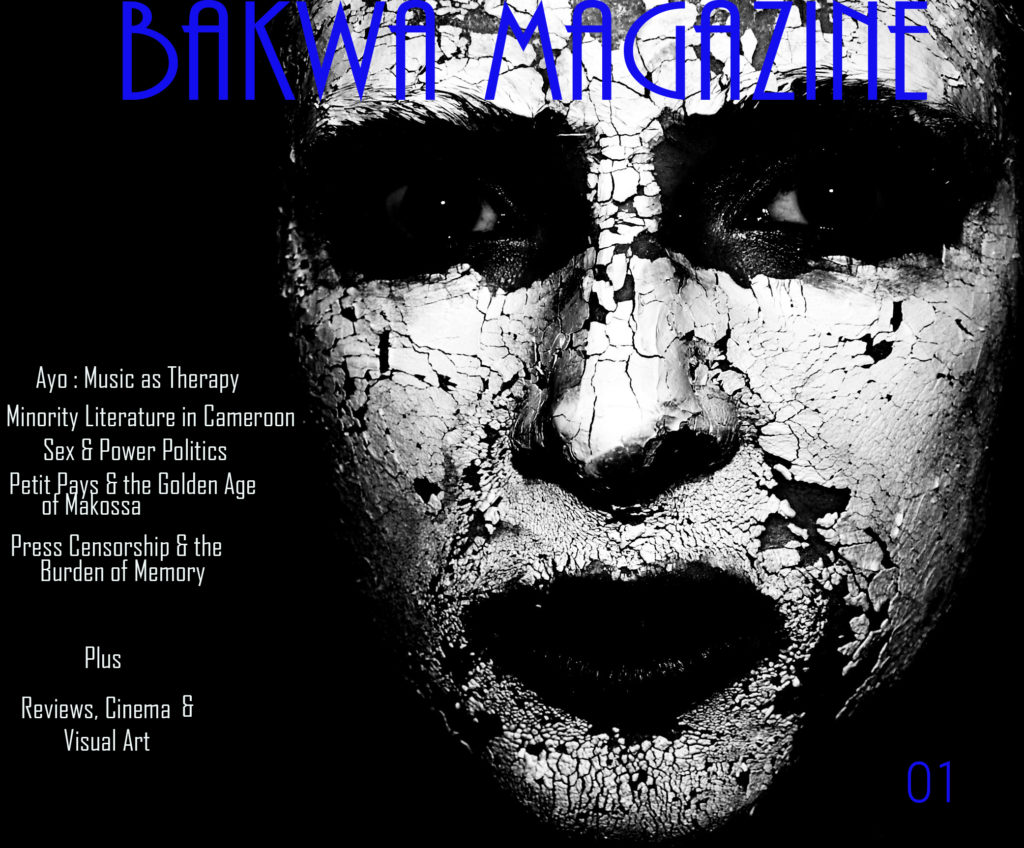The annihilation of memory is a pathology that still plagues the collective memory of a people in this globalized generation . The plethora of outlets for the written word is one way of keeping the word— and by extension our memory and consciousness— alive. The influence that a magazine can have on an audience should not be underestimated; the role played by the Canadian magazine Adbusters in starting the Occupy Movement is an indicator of the power of the written word.
Bakwa Magazine seeks to engage in a cross-continental discourse which will spur a kind of cross-pollination among different writers and artists as they influence and challenge each other irrespective of race, but its prime focus remains Africa and the Black Diaspora.
In this issue, we discover the myriad challenges that minority literatures face as Oscar Labang exposes some of the problems of Cameroonian Literature in English. Indeed, even the nomenclature is problematic, as much ink has been spilled on the issue and has generated names like— Anglophone Cameroon Literature, Cameroon Literature of English Expression, Cameroon Anglophone literature etc.
Kangsen Feka Wakai [Editorial Advisor] takes us to the 90’s, which was the golden age of Makossa and shows us how Petit Pays forged a reputation for himself with his provocative lyrics and controversial habits which shocked the pop-cultural scene. Belinda Otas takes us on a cross-continental journey— from Germany to France—as she interviews Ayo and we see the evolution of her music and what inspired her third album Billie-Eve. There is also a nostalgic piece on the glorious days of Cameroonian cinema.
Two poets spill magical ink as their muses explore politics, damsels, fanaticism and intimacy.
Furthermore, Wirndzerem G. Barfee [Contributing Editor] reviews a lovely poetry collection and touches a very controversial issue— feminism. He explores the relationship between sex, gender, power and politics as he deconstructs the matrix of patriarchy. Herein, we also find a review of journalistic essays as I comment on The Mwalimu’s Reader and show Johnnie MacViban’s forte in political and cultural commentary as he discusses issues and people such as elections, terrorism, cinema, the Congo, oil and geopolitics, democracy, art, journalism, economics, Manu Dibango and Bate Besong.
Our cover picture, courtesy of Eleanor L. Bennett is laden with meaning— Black skin, white mask?, Cultural hybridity?, Make-up?, Regeneration? Etc. Thus, on this note the first issue of Bakwa seeks to ask more questions than to provide answers and make us re-evaluate what we take for granted.
Dzekashu MacViban
Founding Editor
Editorial
